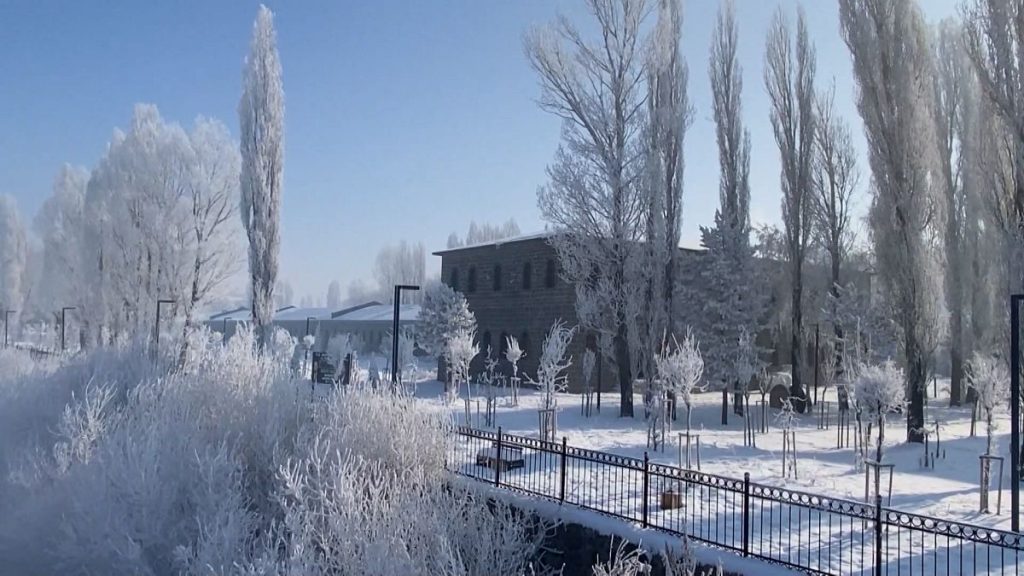The eastern Turkish provinces of Kars and Ardahan are currently in the grip of an unusually harsh winter, with temperatures plunging to a frigid -20 degrees Celsius. This extreme cold snap has brought significant challenges to the daily lives of residents, who are accustomed to colder winters but not to this extent. The pervasive sub-zero temperatures have transformed the urban landscape, encasing buildings in shimmering ice and transforming roads into treacherous skating rinks. Vehicles, left exposed to the elements, have become frozen monuments to the intensity of the cold.
The sudden and severe drop in temperature has caught many residents off guard, testing their resilience and preparedness for such extreme conditions. The deep freeze has disrupted normal routines, making travel hazardous and impacting essential services. The icy roads pose a significant risk to drivers, increasing the likelihood of accidents. Pedestrians also face challenges navigating the slippery streets, increasing the risk of falls and injuries. The extreme cold can also exacerbate existing health conditions, particularly for vulnerable populations such as the elderly and young children.
The pervasive cold has also impacted infrastructure, potentially causing damage to water pipes and other essential utilities. Frozen pipes can burst, leading to water shortages and further disrupting the lives of residents. The extreme cold can also strain power grids as residents increase their energy consumption for heating, potentially leading to power outages. Local authorities are likely working to mitigate these risks and ensure the continued provision of essential services during this challenging period.
The extreme cold is not just impacting urban areas; rural communities in Kars and Ardahan are also facing significant challenges. Farmers and livestock owners are particularly vulnerable, as the extreme cold can threaten crops and livestock. Animals require extra care and shelter to survive the frigid temperatures, and farmers may face difficulties accessing feed and water for their livestock. The cold can also damage crops, potentially impacting food security in the region.
The Turkish government and local authorities are likely coordinating efforts to provide assistance to residents affected by the extreme cold. This may include providing emergency shelters for those without adequate heating, distributing blankets and other essential supplies, and ensuring the continued operation of essential services. The extreme weather event highlights the importance of preparedness for such events and the need for resilient infrastructure that can withstand extreme conditions.
The extreme cold in Kars and Ardahan provides a stark reminder of the power of nature and the challenges posed by extreme weather events. While residents of these regions are accustomed to cold winters, the intensity of this cold snap has pushed their resilience to the limit. The situation underscores the importance of community support, government assistance, and individual preparedness in mitigating the impacts of such events. As climate change continues to influence weather patterns, the frequency and intensity of extreme weather events are likely to increase, highlighting the need for proactive measures to address these challenges and protect vulnerable populations.














